Masking fluid is the Marmite of the watercolor world, but used correctly it can create unique effects. ROB DUDLEY sets an exercise to help you explore the possibilities.

Some artists cite that the reason they prefer to avoid using masking fluid is that it can leave a hard edge to the paint on its removal. That can certainly be the case. However, if the correct paints and paper are used, ones which enable the pigment to be lifted with a damp brush, then edges can be softened.
I enjoy the possibilities that masking fluid brings to my work, the opportunity to use various techniques or to create certain effects that would prove, if not impossible, then very difficult, without using the stuff.
Probably the simplest use of masking fluid is to protect the white of the paper from subsequent washes. However, I also like to use it in combination with other techniques, which allow me to create some interesting and unexpected effects within my paintings.
A particular favourite is one that I call “mask and lift”. As the name suggests, it involves both the masking of selected parts and the lifting of paint from around the masked sections. Use this project to get to know what your materials do, have a play with them and find out. www.moortoseaarts.co.uk
EXERCISE
LEARN HOW TO MASKING AND LIFT
هذه القصة مأخوذة من طبعة August 2019 من Artists & Illustrators.
ابدأ النسخة التجريبية المجانية من Magzter GOLD لمدة 7 أيام للوصول إلى آلاف القصص المتميزة المنسقة وأكثر من 9,000 مجلة وصحيفة.
بالفعل مشترك ? تسجيل الدخول
هذه القصة مأخوذة من طبعة August 2019 من Artists & Illustrators.
ابدأ النسخة التجريبية المجانية من Magzter GOLD لمدة 7 أيام للوصول إلى آلاف القصص المتميزة المنسقة وأكثر من 9,000 مجلة وصحيفة.
بالفعل مشترك? تسجيل الدخول

Still life IN 3 HOURS
Former BP Portrait Award runner-up FELICIA FORTE guides you through a simple, structured approach to painting alla prima that tackles dark, average and light colours in turn
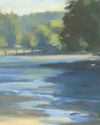
Movement in composition
Through an analysis of three masterworks, landscape painter and noted author MITCHELL ALBALA shows how you can animate landscape composition with movement
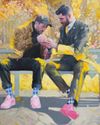
Shane Berkery
The Irish-Japanese artist talks to REBECCA BRADBURY about the innovative concepts and original colour combinations he brings to his figurative oil paintings from his Dublin garden studio

The Working Artist
Something old, something new... Our columnist LAURA BOSWELL has expert advice for balancing fresh ideas with completing half-finished work
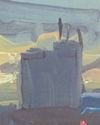
Washes AND GLAZES
Art Academy’s ROB PEPPER introduces an in-depth guide to incorporating various techniques into your next masterpiece. Artwork by STAN MILLER, CHRIS ROBINSON and MICHELE ILLING

Hands
LAURA SMITH continues her new four-part series, which encourages you to draw elements of old master paintings, and this month’s focus is on capturing hands

Vincent van Gogh
To celebrate The Courtauld’s forthcoming landmark display of the troubled Dutch master’s self-portraits, STEVE PILL looks at the stories behind 10 of the most dramatic works on display
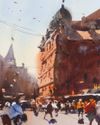
BRING THE drama
Join international watercolour maestro ALVARO CASTAGNET in London’s West End to paint a dramatic street scene
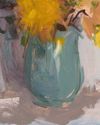
Serena Rowe
The Scottish painter tells STEVE PILL why time is precious, why emotional responses to colour are useful, and how she finds focus every day with the help of her studio wall

Bill Jacklin
Chatting over Zoom as he recovers from appendicitis, the Royal Academician tells STEVE PILL about classic scrapes in New York and his recent experiments with illustration